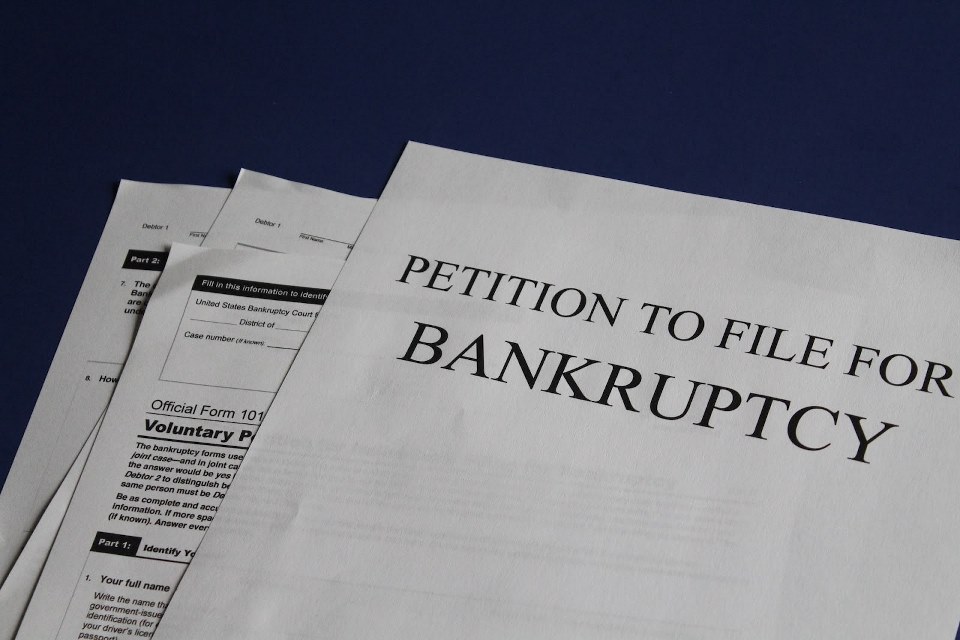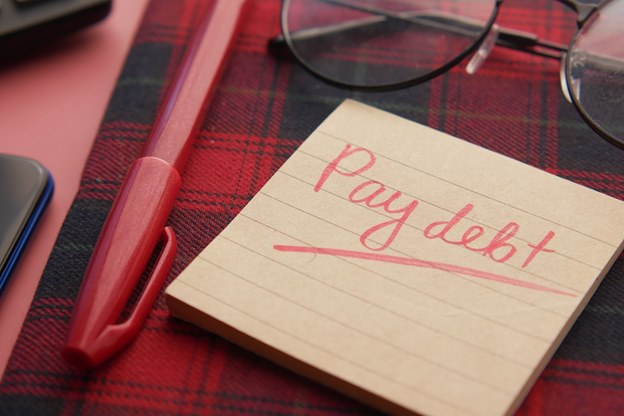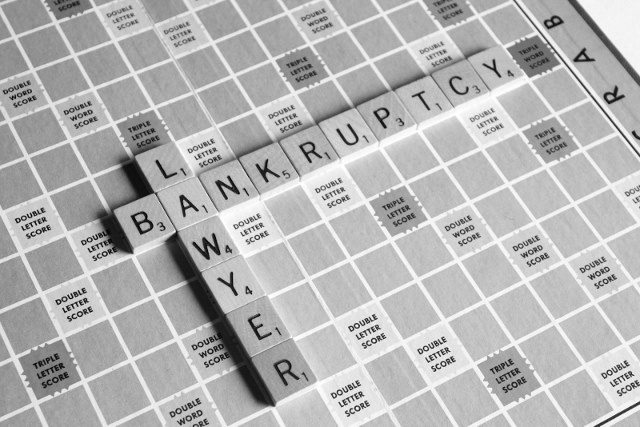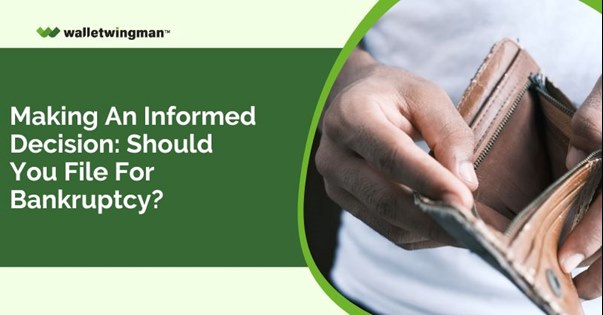Declaring bankruptcy may seem like the end of your financial options, but it also offers the chance to start over. Anybody with an uncomfortably high debt load wonders whether they should declare bankruptcy. Due to its potential implications, you should never take bankruptcy lightly. However, occasionally, it becomes necessary.
If you are considering filing for bankruptcy this year, you are not alone. Over 300,000 people do so each year. But before you decide, ensure it is the best choice to make in your given situation, understand the consequences you face when you do, and what are the alternatives to filing bankruptcy.
This post will enable you to understand some of the basics of bankruptcy so that you can make a more informed decision on deciding to declare bankruptcy.
What is Bankruptcy?

Bankruptcy is a legal alternative that can relieve those whose debts become unmanageable. You may have asked yourself: ‘Should I file for bankruptcy?’ Generally, going through bankruptcy may help clear your debt and give you a new start. However, many people have several misconceptions about how it can help them.
What bankruptcy may do for you depends on your situation and the type you can apply for. There are six different types of bankruptcy. However, most people only file one of two of them:
Chapter 7
This is the most typical type of personal bankruptcy. If you declare bankruptcy and have a meager income, you will likely do so under “Chapter 7” of the legislation. It represents a sizable portion of personal filings and can finally discharge most personal debts. So if you are wondering, ‘Should I file bankruptcy for $20,000 in debt’, this may be the type to go for.
This type of bankruptcy liquidates most of your assets to pay off obligations, but there are some exceptions, such as the balances in retirement accounts. Moreover, among the possible liabilities that remain are tax debts, alimony, and college loans.
A standard classification of Chapter 7 is into asset and no-asset cases. If you are a no-asset filer for Chapter 7, you won’t be required to forfeit your possessions.
Chapter 13
This is the second-most common form of bankruptcy you can file. The court will receive all of your property not protected by law and use it to pay your creditors. You will be given a three-to-five-year repayment plan and will turn over during this process; the court discharges you from certain debts, meaning you will not have to pay them.
When you only have a few valuables, your chances of keeping them are higher. You might be able to keep some of your personal property while receiving some unsecured debt forgiveness.
Pros of Filing for Bankruptcy

The pros and cons of filing bankruptcy may better determine whether it is an excellent route to shedding off your debt. Here we list 4 disadvantages of filing bankruptcy:
1. You Receive An Automatic Stay
On the upside, bankruptcy might be a lifeline if you are drowning in debt. This lifeline is evident in an aspect of bankruptcy law known as the automatic stay. It protects you from creditors when you file for bankruptcy.
This implies that until the court discharges your bankruptcy or finalizes your repayment plan, your creditors cannot demand payment for your debts or take other legal action against you. You might feel immediate relief through lessening stress and the daunting aspect of managing numerous creditors.
2. A New Beginning
Bankruptcy gives you an avenue for clearing your debts which may provide you with a much-needed fresh start to rebuild your financial life. This new start can aid you in growing your credit and establishing sound financial practices. Declaring bankruptcy can provide the solution for how to get out of debt on a low income.
3. You Get to Keep Some of Your Assets
What happens when you declare bankruptcy is that you will probably be able to maintain your assets while paying down your debts, as it is with Chapter 13 bankruptcy. Keeping your property, like your car, may be possible if it qualifies for exemption laws.
Moreover, federal or state exemption laws may protect some of your property depending on where you live, even if the court intends to liquidate your assets under Chapter 7.
4. A Chance to Rebuild Your Credit
Bankruptcy enables you to rebuild your credit. The process of rebuilding your credit starts right after discharging your debts. However, note that you are likely to start with a low credit score, meaning it will require financial discipline to get it up.
Cons of Filing for Bankruptcy
Declaring bankruptcy also has a few drawbacks. Some of these include:
1. A Long Process and You May Lose Valuable Assets
A Chapter 7 bankruptcy costs between $1,000 and $1,750 and is often discharged within a few months of filing. However, a Chapter 13 bankruptcy costs around $3,300 and takes far longer to complete because you must adhere to a three- to five-year payment schedule before dismissing your case.
Additionally, declaring bankruptcy makes you stand a chance of losing your home, car, and other essential possessions. This, however, depends on your income, the type of bankruptcy you qualify for, and the equity in your assets.
2. You May Face Criminal Charges
When you file for bankruptcy, the court will review your provided information. You may face legal consequences if you supply inconsistent or fraudulent information. So, being truthful about your assets and income is in your best interests. For instance, Federal student loans are exempt from bankruptcy unless you meet specific criteria.
3. Bankruptcy Destroys Your Credit and Impacts Your Career
The court will publicize your bankruptcy, and since your credit score indicates your likelihood of repaying your debt, it can severely harm your credit. Insolvency might remain on your credit report for up to ten years.
It may disqualify you from holding certain positions, though it’s rare for this to happen. This is even more impactful if you work in accounting or payroll.
Alternatives to Bankruptcy

It is not advisable to answer the question, ‘Should I file bankruptcy’ without considering the alternatives. For instance, you may not need to file for bankruptcy when you discover debt consolidation. Consider the following:
- You can negotiate with your creditors or loan service provider without the court’s involvement. Instead of receiving nothing, a creditor may agree to a more flexible repayment plan.
- If you owe the IRS money, you can offer a compromise instead of filing for bankruptcy, allowing you to settle with the government for less than you owe and even with a payment plan.
- You can also get debt consolidation loans for bad credit. This means combining some of your higher-interest liabilities into one with a fixed monthly payment.
Frequently Asked Questions (FAQs) About Bankruptcy Filing
1. What Are You Losing by Declaring Bankruptcy?
The trustee chosen for your Chapter 7 bankruptcy case can choose to liquidate any of your non-exempt assets. Luxury goods like cars, boats, and jewels are examples of possessions that can fall into this category.
Nevertheless, even in some Chapter 7 cases, exemption laws could cover all these properties under your name, or the trustee might decide that your assets aren’t worth selling since they’re not worth enough.
However, for those who file bankruptcy under Chapter 13, their properties are safeguarded because they will pay back at least some of the debt to their creditors.
2. What Can You Not Do After Filing Bankruptcies?
David Leibowitz famously said that honest debtors get a fresh start, whereas dishonest ones could potentially go to jail. The most common error people make when filing for bankruptcy is attempting to cheat the system.
In bankruptcy, the court may confiscate all your assets to repay the loan. Due to this, neglecting to disclose all of them may result in criminal prosecution.
Also, do not transfer property to family or friends before filing. The court will reclaim it, and you may even face jail time. Moreover, the court will not tolerate purposely exhausting your credit options before filing. Truth and transparency are critical components of the smooth bankruptcy process.
3. Is it Prudent to File For Bankruptcy?
Your specific financial circumstances will determine whether or not declaring bankruptcy is a smart move for you to consider. When you are strapped for cash, drowned in debt, and see no possible way out of your situation, declaring bankruptcy can be a smart choice for you to consider.
Nevertheless, looking into other options, like debt reduction and settlement, is not a bad idea.
4. Do You See Any Upside to Declaring Bankruptcy?
If you’re overwhelmed by debt, filing for bankruptcy may be your best option. The extra money can make it easier to cover essentials like rent or mortgage, electricity, and food. Basically, bankruptcy can give you an opportunity to start over if your debts are getting out of hand.
Summary
So, should you file for bankruptcy? Well, that depends on the specifics of your financial situation and whether you can withstand the consequences that follow. Deciding to file for insolvency is not easy, but under certain dire circumstances, it can be the best decision, if not the only one.
The road to recovering your credit and financial health after insolvency can be long and complicated, but millions have endured and recovered. You can too. When you decide to file for bankruptcy, it’s best to work with professionals to ensure your bankruptcy is handled correctly and simplified rather than complicating your financial life.


 Mastering Your Finances: Steps to Debt-Free Life
Mastering Your Finances: Steps to Debt-Free Life 